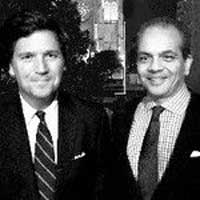Attention readers: Neil Patel is off this week. Please enjoy the following column by Veronique de Rugy.
There's no doubt that the COVID-19 pandemic has disrupted childhood education. In many countries, kids have physically returned to school. In others, schools were never closed. Yet in the United States, many public schools have been closed since March, yielding disastrous results for millions of kids. While scientific data say it's safe to bring them back, incentives in the school systems are such that many kids continue to be locked up at home rather than receiving a proper education.
A school's main role is to educate children. They can feed low-income children and supply day care for working parents, but these benefits are secondary to providing a quality education to (SET ITAL)all(END ITAL) enrolled children.
The fact that children and their taxpayer parents are consumers in this scenario should guide the decisions made by superintendents and school boards. But that hasn't been the case since the start of this pandemic.
For many kids, the last academic year's schooling ended in March rather than in June. Where I live in Arlington County, Virginia, some parents feel as though the students who bothered to show up online weren't really taught new material. A teacher told me in June that absenteeism was extremely high, which isn't surprising given that kids knew there would be no consequences.
Making matters worse, after the summer break, our Arlington schools were hardly more prepared for virtual learning than they were following March's school closings.
Yet for many kids, better preparation wouldn't make a real difference. How do you realistically educate kindergarteners and elementary school students virtually? In Arlington, it took months for the superintendent to allow teachers to teach from their classroom, depriving them of the educational tools we taxpayers have paid for and forcing them to improvise, often poorly. How do you provide adequate online instruction for students with disabilities? What about students whose native language isn't English? Even under the best of circumstances, the education is lacking.
When schools closed in March, there were many unknowns. But the latest research supports the fact that this instructional dysfunction is unnecessary. Experts now know that locking children at home doesn't keep people safe from COVID-19's infectiousness or mortality, and sending them to school doesn't carry much risk either. Studies that looked at the reopening of German schools found that "neither the summer closures nor the closures in the fall have had any significant containing effect on the spread of SARS-CoV-2 among children or any spill-over effect on older generations." The investigators also didn't "find any evidence that the return to school at full capacity after the summer holidays increased infections among children or adults."
The largest study to be published on the issue so far, using data from the United Kingdom, finds no increase in severe coronavirus-related outcomes for adults living with children who go to school. It demonstrated a small increase in infections, which didn't result in any noticeable bad outcomes.
Since our school closed, many parents, including some from the 800 members of the nonpartisan Arlington Parents for Education coalition (where I'm also a member), emailed school officials to alert them to these studies. But instead, these bureaucrats decided to essentially trap students in their homes, often without adult supervision. Failing grades, collapsing math skills, increased educational gaps and mental health issues are the results. And for all the pandering in Arlington County about equity, the most affected students were precisely those lower-income and disabled children.
Some educators would like to go back, but their voices are drowned out by the voices who claim that going back is unsafe. The media shares some of the blame for these fears. A new study by Dartmouth economist Bruce Sacerdote and two other researchers looked at news stories about COVID-19 and found that the coverage of school reopenings was "overwhelmingly negative, while the scientific literature tells a more optimistic story," about how "schools have not become the super-spreaders many feared."
But that's not the whole story. The superintendent and the school board members have little incentive to change their performance since they won't be held accountable for this fiasco -- not even when faced with a roughly 2,500 drop in projected versus actual Pre-K-12 enrollment in Arlington Public Schools since March. Unlike private employees who would fear for their jobs were they responsible for the loss of paying consumers, these bureaucrats have little to fear.
The pandemic has exposed many problems with American society. Let's use this opportunity to address some of the chronic ones we're seeing in government-supplied K-12 schooling.
------------------------
Veronique de Rugy is a senior research fellow at the Mercatus Center at George Mason University. To find out more about Veronique de Rugy and read features by other Creators Syndicate writers and cartoonists, visit the Creators Syndicate webpage at www.creators.com.
COPYRIGHT 2020 CREATORS.COM


















